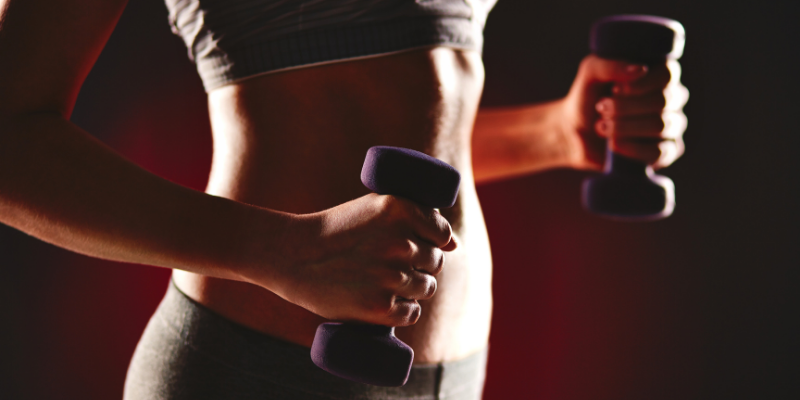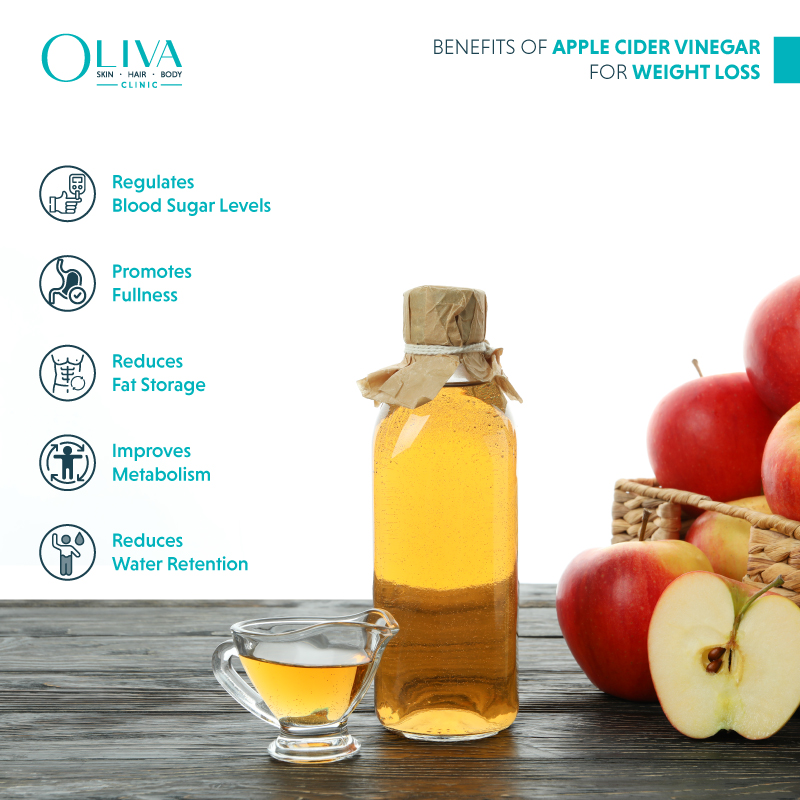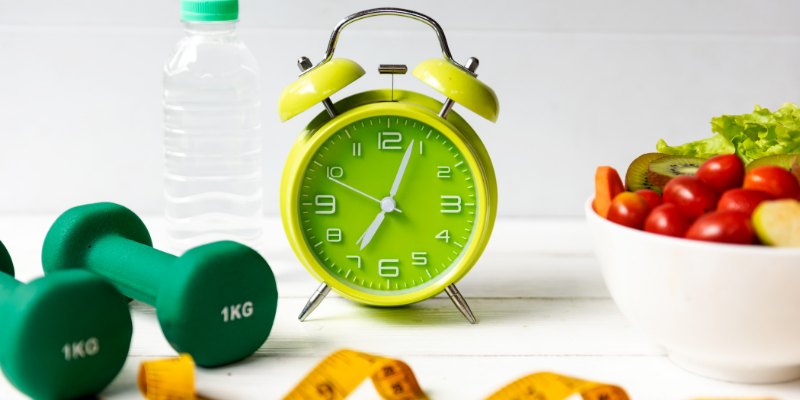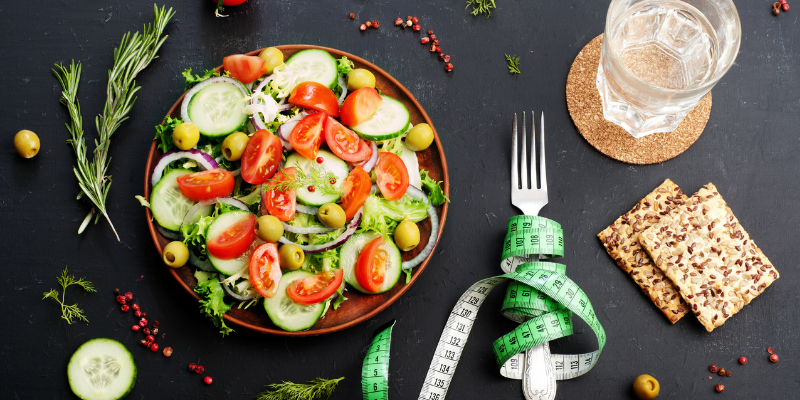Best Fruits For Weight Loss – Top 15 Fruits For Natural Fat Burn
Fruits are delicious superfoods. They play a vital role in enhancing your overall health and well-being. But do you know why dietary experts suggest fruits for weight loss?
Well, fruits are rich in vitamins, minerals, fibre, and antioxidants. These nutrients make fruits a natural and healthy alternative to consuming preserved and processed foods. Fruits help to keep sweet cravings at bay as they are naturally sweet and add to your overall nutrition. That is why fruits are great for effective weight management.
Through this article, we aim to discuss some fruits that are good for weight loss, their benefits, and why some of them are called fat-loss fruits. We will also understand the role of fruits in weight loss and discuss how you can incorporate fruits that aid weight loss into your diet for the best results.
Why Fruits Are Good For Weight Loss?
Research suggests that the consumption of whole fruits has an inverse effect on weight gain. This indicates that the more whole fruits you eat, the less likely you are to become overweight.
Experts believe that there are many reasons why fruits for weight loss are a must-have. Here are some of them:
- Fruits are rich in the antioxidant – polyphenols. They are anti-inflammatory in nature and help cut down fat to protect your health as a whole.
- The antioxidants in fruits also boost metabolism.
- The consumption of fibre-rich fruits positively affects the gut microbiome.
- Fruits are high in fibre and water content. They take much longer to digest, thus leaving you with the feeling of fullness and reduced hunger pangs.
- They are a great replacement for higher-calorie snacks or desserts if you want to reduce your overall calorie intake.
- Nutrients such as vitamins A, E, and C in fruits decrease fat accumulation, mainly in the abdominal area.[1]
All these factors play a beneficial role in making fruits good for weight loss and weight management.
Understanding The Role Of Fruits In Weight Loss:
The reason why nutritionists often suggest fruits to reduce weight is due to their rich nutrient profiles and health benefits. Here is how fruits help with effective weight management:
Nutrient Density:
Fruits are a rich source of vitamins, minerals, and antioxidants that support overall health. This high nutrient density means you get a lot of nutritional value without consuming excessive calories.
For example, blueberries and oranges are fat-loss fruits rich in vitamin C and antioxidants, which boost metabolism and immune function.
High-Fibre Content:
Fibre is the key to weight loss because it helps boost satiety. As a result, you feel full for longer periods, and there is a reduced desire to overeat. Hence, one can reduce overall calorie intake.
Fruits like apples, pears, and berries are some of the healthiest fruits to eat when seeking weight loss because they are high in dietary fibre.
Low Glycaemic Index:
Most fruits have a low glycaemic index (GI). This means they release sugar slowly into the bloodstream, thus preventing any sudden spikes in blood sugar levels. When blood sugar remains stable, there is a reduced desire to eat, and fat storage is also less.
Examples of low-GI fruits include apples, pears, and cherries. These are ideal fruits that help you lose weight while maintaining steady energy levels and reducing cravings.
Low-Calorie Content:
Many fruits are low in calories, which is why they are ideal for weight loss. They provide volume and nutrition without adding significant calories.
Watermelon, strawberries, and papaya are great examples of the best fruits for a healthy diet, as they are significantly low in calories. You can eat them in large quantities if you are hungry without worrying about the risk of weight gain.
Low In Fat:
Most fruits are naturally low in fat. Regular consumption of fruits helps maintain a low-calorie intake. It is both filling and hydrating.
Fruits like oranges, grapes, and berries have low-fat content. Hence, they are perfect for those following a fruit diet for weight loss.
Here is a table indicating how fruits help in weight loss:
Fruit Features |
How They Help With Weight Loss |
| Fibre Content | Fibre enhances satiety and reduces overall calorie consumption. |
| Low-calorie | Fruits with low calories help decrease overall calorie intake and prevent overeating. |
| Low Glycaemic Index | Fruits with a low glycaemic index offer a steady release of energy. This is beneficial for blood sugar regulation and weight management. |
| Natural Sweetness | The natural sweetness of fruits curbs sugar cravings and prevents excessive intake of high-calorie sugary foods and desserts. |
| High water content | High water content is key to weight loss as it helps flush out toxins and keeps you feeling full for a long time. |
Top 15 Fruits For Weight Loss:
If you are looking for the perfect weight-reducing fruits list, here are the 15 best fruits for weight loss that you must consider. Incorporate them into your daily diet to initiate healthy and effective weight management:
Apples:
Apples are rich in pectin, a soluble fibre that causes fullness as your body digests it slowly. This fruit is low in calories and, hence, an excellent snack choice for managing weight. Apples are also rich in antioxidants, which help fight the damage caused by free radicals. They are effective in boosting fat loss.
Nutritional Profile of Apples Per 100 grams:
Nutrient |
Amount per 100 grams |
| Calories | 52 |
| Protein | 0.3 grams |
| Fat | 0.2 grams |
| Carbohydrates | 14 grams |
| Fibre | 2.4 grams |
| Sugar | 10 grams |
Best Time To Consume: Have for breakfast or as a mid-morning snack.
Avocados:
Avocados are a rich source of healthy monounsaturated fats. They promote satiety and reduce overall calorie intake. They also contain fibre and nutrients that support metabolism. Even though they offer high calories, avocados help with weight management by preventing overeating.
Nutritional Profile of Avocados Per 100 grams:
Nutrient |
Amount per 100 grams |
| Calories | 160 |
| Protein | 2 grams |
| Fat | 15 grams |
| Carbohydrates | 9 grams |
| Fibre | 7 grams |
| Sugar | 0.7 grams |
Best Time To Consume: Breakfast or lunch, or as part of a pre-lunch salad.
Cherries:
Cherries are low in calories and high in water content. They are one of the many healthy fruits for weight loss that are vitamin-rich and hydrating to keep you feeling full. Rich in fibre, cherries aid in digestion and promote satiety. They are a storehouse of antioxidants and, hence, help reduce inflammation, which can aid in weight management.
Nutritional Profile of Cherries Per 100 grams:
Nutrient |
Amount per 100 grams |
| Calories | 50 |
| Protein | 1 gram |
| Fat | 0.3 grams |
| Carbohydrates | 12 grams |
| Fibre | 1.6 grams |
| Sugar | 8 grams |
Best Time To Consume: Mid-morning or afternoon snack.
Mangoes:
Mangoes are rich in vitamins, especially Vitamin C and fibre. They aid in digestion and promote satiety. They have a moderate calorie content and are sweet, which can help curb cravings for unhealthy snacks and desserts.
Nutritional Profile of Mangoes Per 100 grams:
Nutrient |
Amount per 100 grams |
| Calories | 60 |
| Protein | 0.8 grams |
| Fat | 0.4 grams |
| Carbohydrates | 15 grams |
| Fibre | 1.6 grams |
| Sugar | 14 grams |
Best Time To Consume: Morning or early afternoon.
Papayas:
Papayas are one of the most preferred fruits for weight loss. This is because of their high fibre and low sugar content. Papayas are also low in calories, making them an ideal addition to a fruit diet for weight loss. This fruit contains papain, an enzyme that boosts digestion and reduces bloating. The high water content in papaya keeps you hydrated and full.
Nutritional Profile of Papayas Per 100 grams:
Nutrient |
Amount per 100 grams |
| Calories | 43 |
| Protein | 0.5 grams |
| Fat | 0.3 grams |
| Carbohydrates | 11 grams |
| Fibre | 1.7 grams |
| Sugar | 8 grams |
Best Time To Consume: Breakfast or post-lunch snack.
Kiwis:
Kiwifruits are low in calories and high in fibre. Thus, they help keep you full for longer periods. They also have a high water content, promoting hydration. Rich in vitamins E and C, kiwis are strong immunity boosters that can also help burn fat and aid inch-loss. Their low glycaemic index makes them one of the best fruits to eat for weight loss. Kiwis are ideal for pre-diabetics and diabetics, as they can satisfy sugar cravings healthily. They also contain the enzyme actinidin, which helps in the breakdown of proteins to boost metabolism.
Nutritional Profile of Kiwifruits Per 100 grams:
Nutrient |
Amount per 100 grams |
| Calories | 41 |
| Protein | 0.8 grams |
| Fat | 0.4 grams |
| Carbohydrates | 10 grams |
| Fibre | 2.1 grams |
| Sugar | 7 grams |
Best Time To Consume: Add in your breakfast or post-lunch snack.
Pears:
Pears are a great source of dietary fibre. They are one of the best fruits for weight loss because they help promote satiety, improve gut health and regulate bowel movement. Low in calories, pears have a high water content, making them a hydrating and satisfying snack option. They are also rich in antioxidants that build immunity and support overall health.
Nutritional Profile of Pears Per 100 grams:
Nutrient |
Amount per 100 grams |
| Calories | 57 |
| Protein | 0.4 grams |
| Fat | 0.1 grams |
| Carbohydrates | 15 grams |
| Fibre | 3.1 grams |
| Sugar | 10 grams |
Best Time To Consume: Mid-morning snack or as a 4 p.m. snack.
Pomegranates:
This fruit is rich in fibre and antioxidants. It helps boost digestion and reduces inflammation in the body. Pomegranates are a must-have in any fruit diet for weight loss as they are low in calories and have a high water content. They can also help regulate blood sugar levels, which is important for weight control.
Nutritional Profile of Pomegranates Per 100 grams:
Nutrient |
Amount per 100 grams |
| Calories | 83 |
| Protein | 1.7 grams |
| Fat | 1.2 grams |
| Carbohydrates | 19 grams |
| Fibre | 4 grams |
| Sugar | 14 grams |
Best Time To Consume: Breakfast option or as a mid-morning snack.
Watermelons:
Watermelon is low in calories and has a high water content. Watermelons curb your appetite by being highly hydrating and wholesome. They are rich in vitamins and antioxidants that boost your immunity. Watermelons are a good source of lycopene, which helps in reducing fat accumulation. That is why this fruit is one of the best fat-loss fruits.
Nutritional Profile of Watermelons Per 100 grams:
Nutrient |
Amount per 100 grams |
| Calories | 30 |
| Protein | 0.6 grams |
| Fat | 0.2 grams |
| Carbohydrates | 8 grams |
| Fibre | 0.4 grams |
| Sugar | 6 grams |
Best Time To Consume: Mid-morning snack and an afternoon or 4 p.m. snack.
Guavas:
Guavas are low in calories and high in fibre, which helps maintain a healthy digestive system and promote satiety. They are also rich in vitamins and antioxidants, which support overall health and metabolism and aid in weight loss.
Nutritional Profile of Guavas Per 100 grams:
Nutrient |
Amount per 100 grams |
| Calories | 68 |
| Protein | 2.6 grams |
| Fat | 1 gram |
| Carbohydrates | 14 grams |
| Fibre | 5.4 grams |
| Sugar | 9 grams |
Best Time To Consume: Mid-morning or as an evening snack.
Oranges:
Oranges are low in calories and high in fibre and water, making them a satisfying and hydrating fruit. They help reduce appetite and provide a sweet yet healthy option for those looking to lose weight. Their high vitamin C content also boosts metabolism and immune function.
Nutritional Profile of Oranges Per 100 grams:
Nutrient |
Amount per 100 grams |
| Calories | 47 |
| Protein | 0.9 grams |
| Fat | 0.1 grams |
| Carbohydrates | 12 grams |
| Fibre | 2.4 grams |
| Sugar | 9 grams |
Best Time To Consume: Breakfast option or as a mid-morning snack.
Grapefruits:
Grapefruit is popular for its ability to promote weight loss because it is a low-calorie fruit with high fibre content. Grapefruit can help regulate insulin levels. As a result, they help reduce fat storage and control hunger signals.[2]
Nutritional Profile of Grapefruits Per 100 grams:
Nutrient |
Amount per 100 grams |
| Calories | 42 |
| Protein | 0.8 grams |
| Fat | 0.1 grams |
| Carbohydrates | 11 grams |
| Fibre | 1.6 grams |
| Sugar | 7 grams |
Best Time To Consume: With breakfast and as a midday snack after or before meals.
Dates:
Dates are high in fibre, which helps promote a feeling of fullness and reduce appetite. They are also a good source of energy and nutrients, making them an excellent snack option for those on a weight loss journey. Their natural sweetness can help curb sugar cravings.
Nutritional Profile of Dates Per 100 grams:
Nutrient |
Amount per 100 grams |
| Calories | 282 |
| Protein | 2.5 grams |
| Fat | 0.4 grams |
| Carbohydrates | 75 grams |
| Fibre | 8 grams |
| Sugar | 63 grams |
Best Time To Consume: Early afternoon or as a post-workout snack.
Bananas:
Bananas are rich in fibre and starch and can be very satiating. They provide energy and nutrients, making them a great pre-or post-workout snack. Bananas are great for your gut, as they reduce bloating and support digestion as well.
Nutritional Profile of Bananas Per 100 grams:
Nutrient |
Amount per 100 grams |
| Calories | 89 |
| Protein | 1.1 grams |
| Fat | 0.3 grams |
| Carbohydrates | 23 grams |
| Fibre | 2.6 grams |
| Sugar | 12 grams |
Best Time To Consume: Early morning and before or after a workout.
Blueberries:
Blueberries are low in calories and have high fibre and antioxidants. They help improve metabolism and support fat burning. Their high antioxidant content also reduces inflammation and helps in weight management. You can add blueberries to smoothies, salads, or snacks for a delicious intake.
Nutritional Profile of Blueberries Per 100 grams:
Nutrient |
Amount per 100 grams |
| Calories | 57 |
| Protein | 0.7 grams |
| Fat | 0.3 grams |
| Carbohydrates | 14 grams |
| Fibre | 2.4 grams |
| Sugar | 10 grams |
Best Time To Consume: Early morning, with breakfast, or as a mid-day snack.
How To Incorporate Fruits Into Your Weight Loss Diet?
Fruits are a fantastic addition to a weight loss diet because they are low in calories and packed with fibre, vitamins, and antioxidants. Here are some simple ways to incorporate more fruits into your meals:
Make Fruits A Part Of Every Meal:
Fruits are naturally low in calories and high in fibre, which can aid weight loss. Try to include a serving of fruit with every meal and snack.
Choose A Variety Of Fruits:
With their varying colours, flavours, and textures, fruits offer something for everyone. Try to eat a variety of fruits every day to ensure you get a wide range of nutrients.
Use Fruit As A Topping Or Ingredients:
Fruits can enhance the flavour and nutritional value of many dishes.
- For breakfast, add sliced apples to oatmeal or mix berries into yoghurt.
- You can also add fruits to salads
- Citrus fruits make a great combination with grilled chicken or fish
- You can also use fruits as a natural sweetener in recipes.
Snack On Fruits:
Fruits make for convenient and healthy snacks. Keep different types of fruits handy for snack times as a quick bite to grab and go.
Add A Fruit In Smoothies:
Smoothies are an excellent way to get more fruit into your diet. Blend a variety of fruits to create delicious and nutrient-rich smoothies. Smoothies preserve the fibre as well.
Portion Size Of Weight Loss Fruits:
A lot of people go overboard when they include fruits for weight loss in their diet plan. However, what is important is maintaining portion sizes. You have to eat different fruits in different quantities based on their size, calories and weight. You can use the table below as a guide:
Fruits |
Recommended Serving Size |
| Apple | 1 medium – 170 – 180 grams |
| Kiwis | 2 small – 70 – 80 grams |
| Grapefruit | 1 medium – 170 – 180 grams |
| Orange | 1 medium – 150 – 160 grams |
| Plums | 2 small – 60 – 70 grams |
| Apricots | 2 small – 70 – 80 grams |
| Pear | 1 medium – 160 – 170 grams |
| Watermelon, muskmelon, and cantalope | 1 cup, cubed – 160 – 170 grams |
| Berries ( Any one type or mixed) | 1 cup – 140 – 150 grams |
Tips For Consuming Fruits For Weight Loss:
These tips help you derive the best results of your fruit diet for weight loss. Here are some of the key takeaways you must always keep in mind:
Things To Do:
- Always have different fruits to eat so that you get a wide variety of nutrients from your diet.
- Instead of just focusing on the best fruits for diet, consume a balanced, healthy, and wholesome diet of which fruits are also a part.
- Opt for fruits instead of high-calorie foods, which are otherwise poor in their nutritional value.
- Make sure you are having fruits throughout the day across different timings for maximum benefits.
Things To Avoid:
- Stay away from fruit juices as a replacement for whole fruits. Fruit juices do not give you the precious fibre that is the main nutrient for weight loss.
- Never overeat fruits. Stick to portion sizes and combine them with a balanced diet and regular exercise.
- Do not add sugar or salt to your fruit bowl, smoothies, and yoghurt. Have your fruit fresh and as is.
Conclusion
While you are on your weight loss journey, it is important to always remember that creating a calorie deficit through diet and workouts is the foundation for achieving successful weight loss. You can consume fruits for weight loss, but eating a balanced diet and working out are equally important to get results. Pay attention to your portion sizes and follow healthy eating patterns.
We strongly recommend that you consult a qualified nutritionist to get the most suitable diet plan for your body type and present health status. Making expert-guided changes is sure to yield the best results of your weight loss journey.
Frequently Asked Questions On Fruits For Weight Loss
Are All Fruits Equally Effective For Weight Loss?
No, not all fruits are equal in their effectiveness in aiding weight loss. Fruits that are low in calories and high in fibre are healthy fruits for weight loss as compared to high-calorie fruits.
How To Eat Fruits On A Weight-Loss Diet?
If you want to lose weight, you can add fruits to your daily diet chart as part of your pre-workout or post-workout snacks. You can also add them to your breakfast or carry them along as a mid-day snack. You can add fruits to your salads, smoothies, or yoghurt as well.
How Many Servings Of Fruit Should I Eat Per Day For Weight Loss?
If you are eating fruits for weight loss, try to consume 2-3 servings a day.
Can Eating Too Much Fruit Cause Weight Gain?
Yes, consuming too much fruit can lead to weight gain due to the natural sugars and calories. While fruits are healthy, you should eat them in moderation as part of a balanced diet. This will help prevent excessive calorie consumption.
What Are Fruits That Can Be Avoided For Weight Loss?
If you are trying to lose weight, avoid or limit fruits that are high in sugar and calories.
Is The Sugar In Fruits Bad For Weight Loss?
The natural sugar in fruits is not bad for weight loss. However, it is important to consume fruits in moderation.
Is It Better To Eat Whole Fruits Or Drink Fruit Juices For Weight Loss?
Eating whole fruits is better for weight loss than drinking fruit juices. Whole fruits contain fibre, which promotes fullness and aids digestion.
Can Fruits Be Consumed As Part Of A Meal, Or Should They Be Eaten Separately?
You can consume fruits as part of a meal or as a separate snack. Including fruits in meals, like adding berries to breakfast cereal or a salad, can enhance the nutritional value of the meal. You can eat fruits separately during snack time.
Which Fruit Burns The Most Belly Fat?
While no fruit specifically targets belly fat, fruits like grapefruit, apples, and berries are low in calories and high in fibre. They can help reduce overall body fat, including belly fat.
What Is The Lowest-Calorie Fruit?
Watermelon is one of the lowest-calorie fruits, with about 30 calories per 100 grams. It is also high in water content, which helps with hydration and satiety.
What Is The Best Fruit To Eat Daily?
Berries, such as blueberries, strawberries, and raspberries, are among the best fruits to eat daily due to their high antioxidants, fibre, and vitamins. They are also low in calories.









